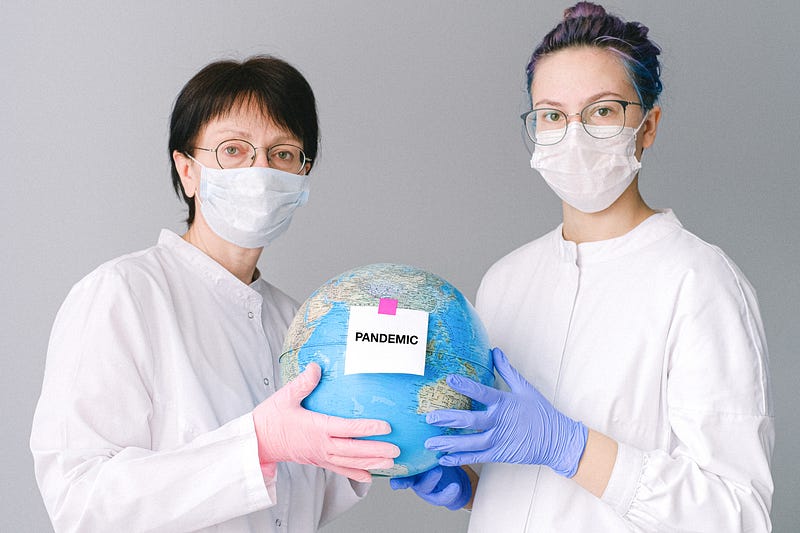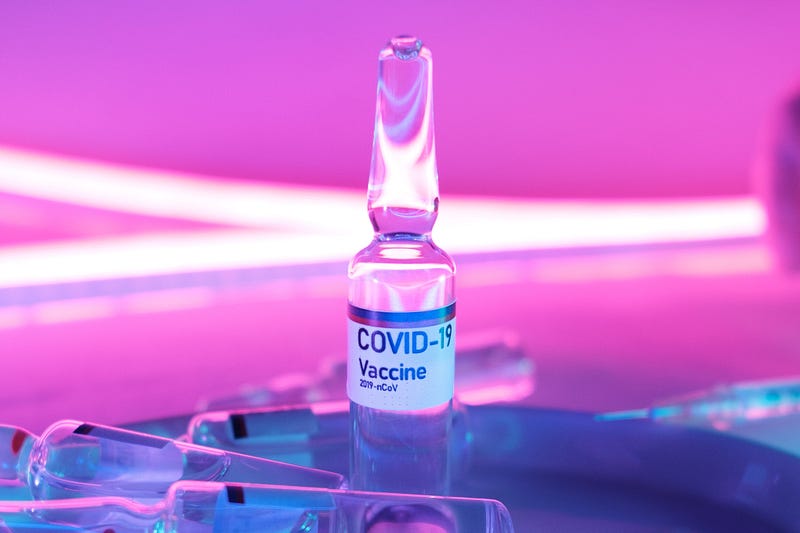Understanding COVID-19 Boosters: Key Insights for Everyone
Written on
Chapter 1: The Current State of COVID-19
The ongoing global pandemic continues to evolve, and the impact of COVID-19 remains significant.
“We know how to bring the economy back to life. What we do not know is how to bring people back to life.” — President of Ghana, Akufo Addo
According to Johns Hopkins University, nearly 676,000 Americans have lost their lives to COVID-19, a figure alarmingly close to the toll of the Spanish flu of 1918–19. Projections indicate the U.S. death toll could exceed 780,000 by March 2022. Despite the widespread availability of vaccines, many individuals are hesitant to receive them. As it stands, only 182 million Americans are fully vaccinated, representing about 55% of the population.
Section 1.1: Understanding the COVID-19 Virus and Vaccination
Experts suggest that the COVID-19 virus might weaken gradually as it mutates, thanks to our immune systems learning to combat it through vaccinations and natural infections. Ideally, this weakening process could unfold over several years.
According to the CDC’s Morbidity and Mortality Weekly Report, "COVID-19 vaccination has continued to provide robust protection against hospitalization and death even after the highly contagious Delta variant became the dominant strain in late June. If you aren’t fully vaccinated and get COVID-19, your risk of hospitalization or death is over 10 times greater than that of someone who is fully vaccinated."
While being fully vaccinated offers protection against variants, breakthrough infections can still occur, typically resulting in milder symptoms for individuals without other risk factors. To minimize the virus's spread and its potential to mutate, it is crucial to adhere to preventive measures like mask-wearing, social distancing, and vaccination.

Section 1.2: The Importance of Booster Shots
My family is preparing for our booster shots, as it has been nearly six months since we received our second Moderna dose. Recent research indicates that vaccine effectiveness might start to wane approximately six to eight months post-vaccination. A booster would enhance our immune defense against COVID-19 and its variants.
Currently, the FDA and CDC recommend booster shots primarily for individuals aged 65 and older, as well as those at high risk for severe symptoms, including residents and staff of long-term care facilities and frontline healthcare workers. The government has authorized third doses of the Pfizer and Moderna vaccines for immunocompromised individuals, such as cancer patients and organ transplant recipients.
However, the CDC has yet to approve boosters for Moderna and Johnson & Johnson vaccines, lacking sufficient data on the safety and effectiveness of mixing vaccine brands. Scientists are also cautious about recommending boosters for the general public, raising concerns about potential rare side effects, such as heart inflammation, particularly in younger men.
Furthermore, the World Health Organization has voiced strong opposition to wealthy nations rolling out booster shots, advocating instead for equitable distribution of vaccines to countries with lower vaccination rates to help control the pandemic.

Chapter 2: The Takeaway on Booster Shots
For now, we have decided to postpone our booster shots until more research confirms their safety and efficacy. By waiting, we might extend our immunity further. Dr. William Schaffner, a professor of preventive medicine and infectious diseases at Vanderbilt University Medical Center, states, "You’ll get a more robust immune response if you wait a little longer before you get your booster."
In the meantime, we will continue to adhere to COVID-19 safety protocols for the foreseeable future.
We are all in this together. What are your thoughts on booster shots? Feel free to share in the comments below.
The first video provides essential insights on what you need to know about the COVID-19 booster, discussing its importance in the ongoing fight against the pandemic.
The second video covers eight crucial things you should be aware of regarding COVID-19 boosters, offering valuable information for informed decision-making.